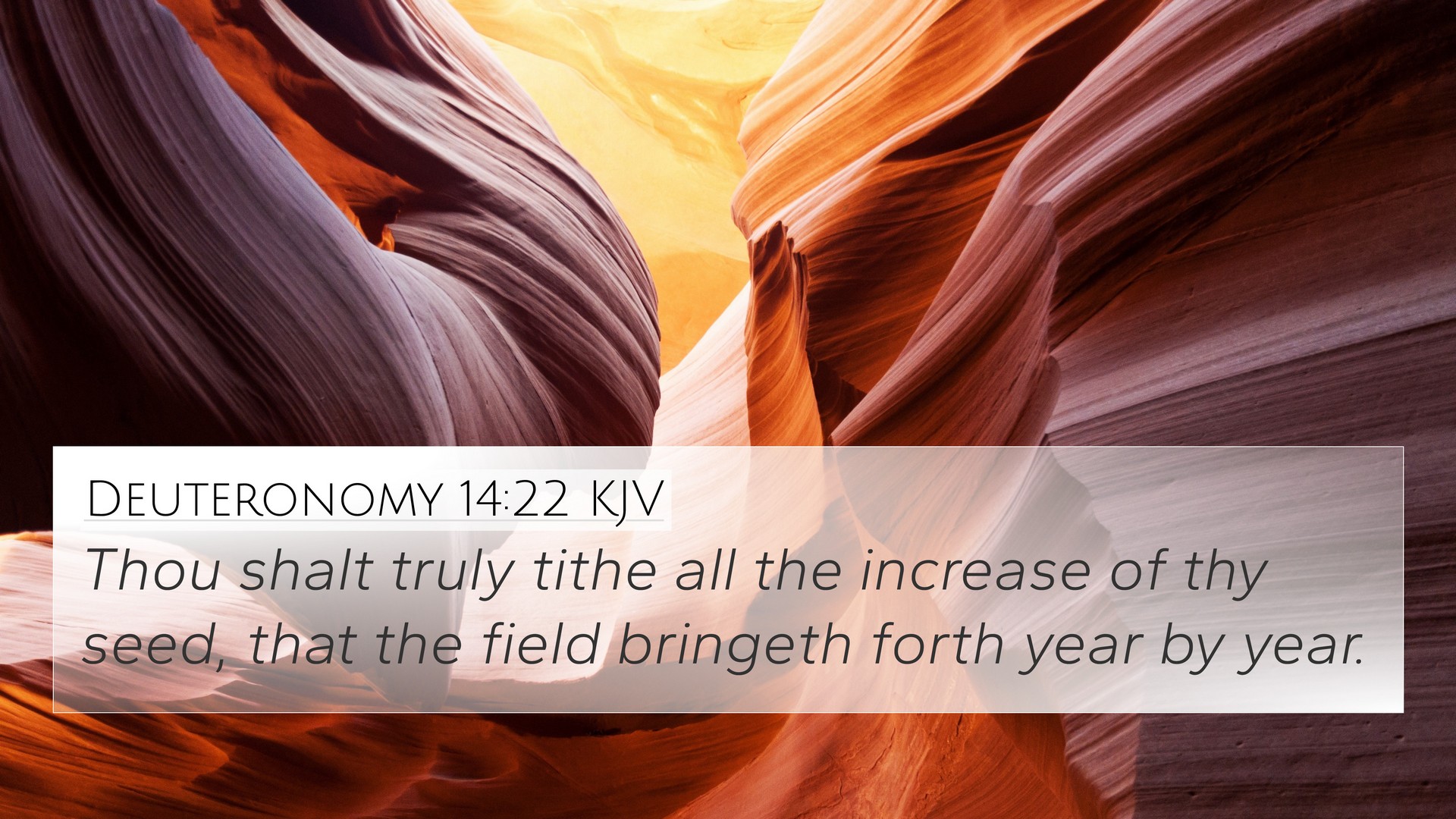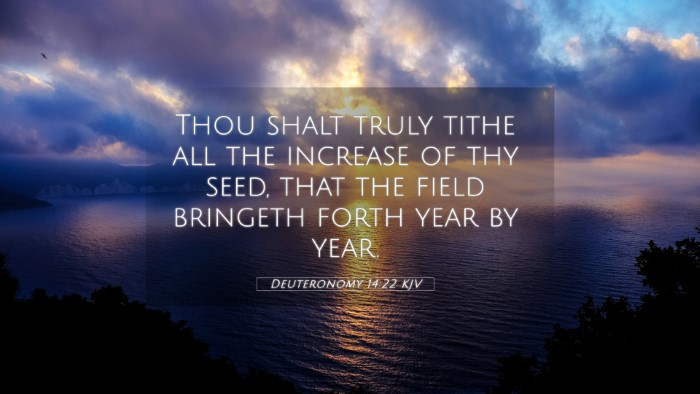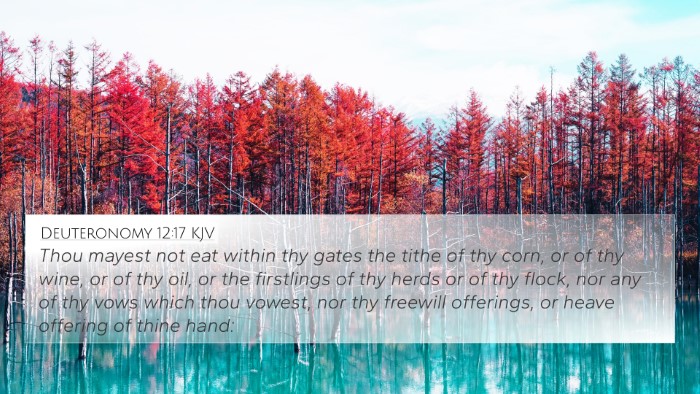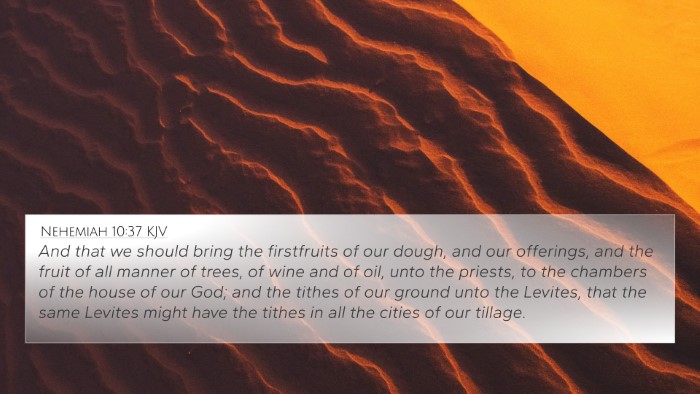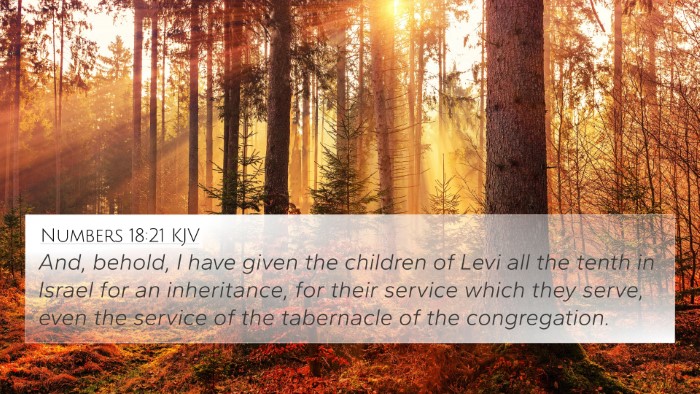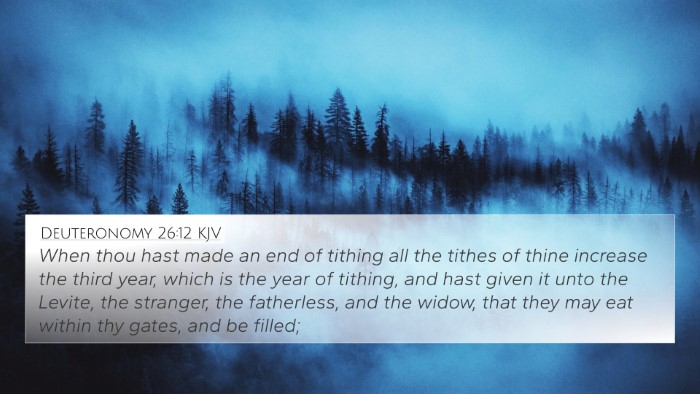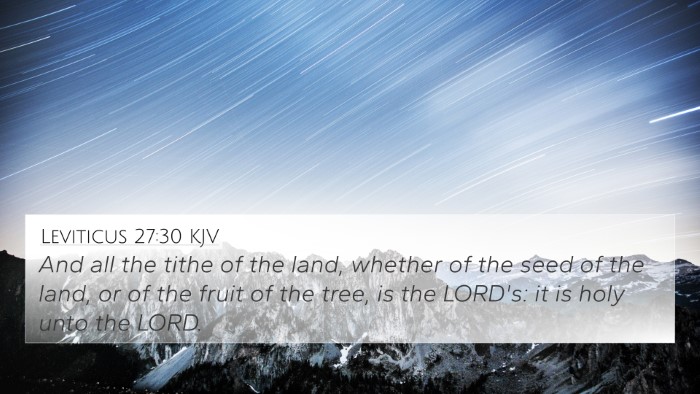Understanding Deuteronomy 14:22
Deuteronomy 14:22 states, "You shall surely tithe all the produce from what you sow, which comes out of the field every year." This verse emphasizes the importance of tithing as a form of worship and gratitude to God for His provision. The act of tithing is fundamental in expressing faith and obedience within the covenant community of Israel.
Commentary Insights
This verse can be understood through various biblical commentaries:
-
Matthew Henry:
Henry emphasizes that the practice of tithing is a acknowledgment of God's ownership over all things. Tithes are meant to support the Levites and the priests as they had no inheritance in the land, underscoring the community's responsibility to support its spiritual leaders.
-
Albert Barnes:
Barnes elaborates on the principle of tithing as a way to maintain spiritual discipline and ensure that worship and ministry are sustained. He notes that this agricultural practice reflects a deeper acknowledgment of God’s blessings.
-
Adam Clarke:
Clarke discusses the tithe's role as part of a broader system of religious and social justice, viewing it as a means of providing for the needs of those serving the community spiritually and ensuring equitable distribution of community resources.
Thematic Connections to Other Scriptures
Deuteronomy 14:22 has thematic connections and parallels in various other Bible verses:
- Leviticus 27:30: "And all the tithe of the land, whether of the seed of the land or of the fruit of the trees, is the Lord's; it is holy to the Lord." This emphasizes the sanctity of the tithe.
- Malachi 3:10: "Bring the whole tithe into the storehouse, that there may be food in my house." This verse promotes the practice of tithing and the blessings that accompany it.
- 2 Corinthians 9:7: "Each one must give as he has decided in his heart, not reluctantly or under compulsion, for God loves a cheerful giver." This stresses the attitude behind giving, connecting to the heart of tithing.
- Matthew 23:23: "Woe to you, teachers of the law and Pharisees, you hypocrites! You give a tenth of your spices—but you have neglected the more important matters of the law—justice, mercy, and faithfulness." This reflects the importance of heart over mere legalistic tithing.
- Hebrews 7:5: "And those descendants of Levi who receive the priestly office have a commandment in the Law to collect a tenth from the people." This acknowledges the Levitical priesthood and their role in receiving tithes.
- Proverbs 3:9: "Honor the Lord with your wealth, with the firstfruits of all your crops." This connection emphasizes prioritizing God in our financial decisions.
- 1 Timothy 5:17: "The elders who direct the affairs of the church well are worthy of double honor, especially those whose work is preaching and teaching." This ties back into the importance of providing for spiritual leaders.
Cross-Referencing in Biblical Study
This verse serves as a cornerstone for understanding several biblical themes and establishing links between Old and New Testament teachings. Cross-referencing these texts allows believers to gain nuanced insights.
To effectively draw connections, one can utilize a bible concordance and bible cross-reference guide to identify relevant links between themes across the scriptures.
Conclusion
In summary, Deuteronomy 14:22 emphasizes the significance of tithing not just as a ritual duty, but as an expression of faith, community support, and gratitude toward God for His blessings. The connections established through cross-referencing various biblical texts deepen our understanding and highlight the continuity of God’s principles throughout Scripture.
